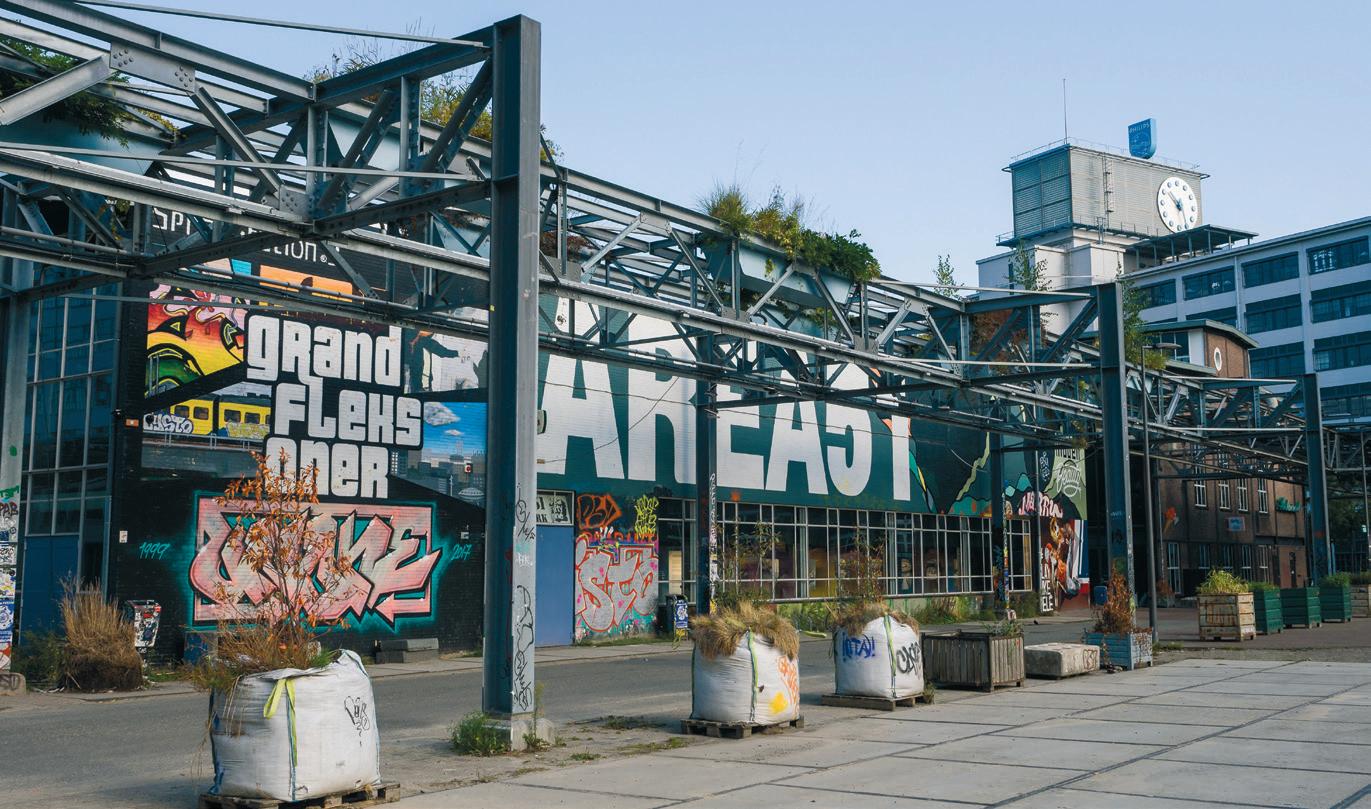
1 minute read
INDUSTRIAL HERITAGE with a second life
from Hidden Holland
152 Hembrugterrein
Hemkade 18
Zaandam
North Holland
+31 (0)20 214 89 52 hembrugterrein.com
This former Defence site was used as an arms and ammunition plant. The products were tested in the ‘Plofbos’ or explosion forest. There are still several monumental industrial buildings on this interesting site, which is now occupied by artists, designers, furniture shops, museums, a food hall and restaurants. It can be easily reached by bike or by bus from Zaandam station. A nicer option is to take the Zaan ferry from Amsterdam Centraal. Check the time-tables before going (zaanferry.com) in that case.
153 STRIJP-S
Torenallee 1
Eindhoven
North Brabant
+31 (0)40 780 51 41 strijp-s.nl
154 HONIGCOMPLEX
Waalbandijk 8-22
Nijmegen
Gelderland honigcomplex.nl
Say Eindhoven and most people will answer Philips. This lighting manufacturer contributed to the development of Eindhoven. The former Strijp-S factory site is a perfect example of how to give an industrial site a new lease on life. You can see the newest art-house films in the former physics lab (which Einstein visited!). There are plenty of original and fun shops in the Urban Shopper shopping centre (fashion, vintage furniture, bookshops, hairdressers) and you can quench your thirst and find a local, fresh snack to eat at the Het Veem market.
You can still see the old logo of Honig, a sauce and soup manufacturer, which occupied the premises until 2012, on the old flour silo. The plant will be demolished in 2022, unless new entrepreneurs are able to block the plans. Until then, the premises are occupied by several artisan and creative companies, such as furniture and bag makers, coffee roasters and beer brewers (Oersoep). Pop into the STOOM brew pub among others for a drink and a snack.
Maastricht
Limburg
A new city district is developing on the premises of the old pottery factory. A beautifully-designed cinema, a concert venue, a branch of The Student Hotel, a furniture shop and 400 new dwellings must breathe new life into the ‘Sphinx’. The new passage with a 120-metre-long tile wall tells the unique history of this site. Find out more about the Sphinx and the people who used to work in the plant in 26 chapters, made from 30.000 (!) tiles.



